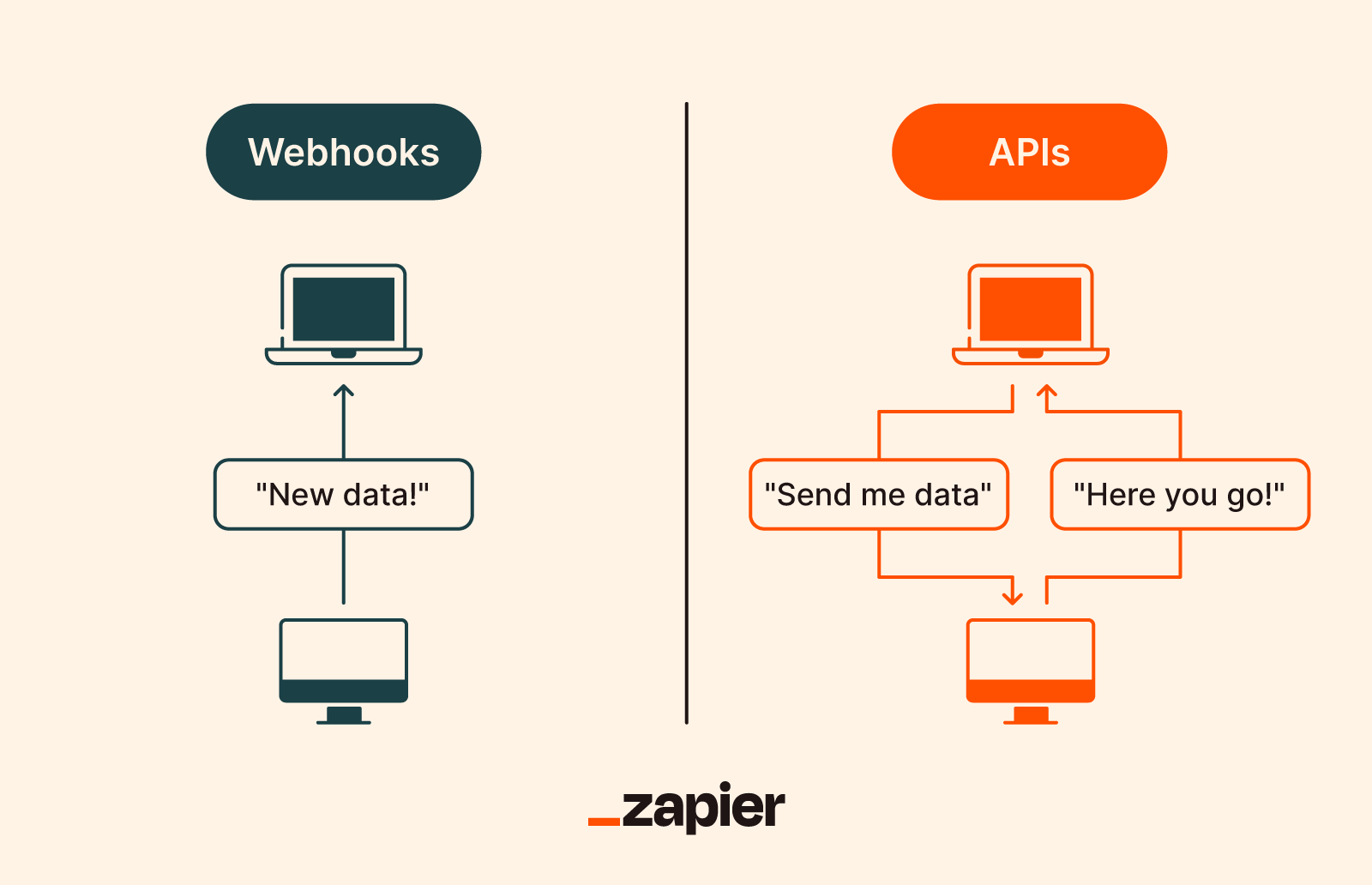
API vs Webhook: Understanding the Key Differences
In modern web development, APIs and webhooks are fundamental concepts for system communication, but they serve different purposes and follow different patterns.
What is an API?
An API (Application Programming Interface) is a set of protocols and tools that allows different software applications to communicate with each other. The key characteristic is that the client initiates the request to the server.
A mobile app makes a GET request to a weather API endpoint:
GET https://api.weather.com/v1/location?city=Madrid
The server responds with current weather data in JSON format.
A website sends user credentials to an authentication API:
POST https://api.example.com/auth/login
The server validates credentials and returns an access token.
What is a Webhook?
A webhook is a method for real-time communication where the server initiates the request to a client-specified URL when certain events occur.
When a PayPal transaction completes, PayPal sends a POST request to your configured endpoint:
POST https://yourdomain.com/paypal/webhook
Your server processes the payment confirmation without needing to poll PayPal's servers.
When code is pushed to a GitHub repository, GitHub sends a payload to your CI/CD system:
POST https://your-ci-server.com/github-webhook
This triggers an automatic build and deployment process.
| Feature | API | Webhook |
|---|---|---|
| Communication Direction | Client → Server (Request-Response) | Server → Client (Event-Driven) |
| Initiation | Client initiates requests | Server initiates notifications |
| Timing | On-demand (when client needs data) | Real-time (when events occur) |
| Implementation | Client polls server periodically | Server pushes data immediately |
| Best For | Data retrieval, CRUD operations | Notifications, event processing |
Key Insight: APIs are like making phone calls (you initiate when you need information), while webhooks are like leaving your number to receive callbacks when something important happens.
Conclusion: When to Use Each
Use APIs when:
- You need to request specific data on demand
- You want full control over when and how data is retrieved
- You're performing CRUD operations
Use Webhooks when:
- You need real-time notifications about events
- Polling would be inefficient (too frequent or resource-intensive)
- You want to trigger processes automatically when events occur
Many modern applications use both APIs for standard operations and webhooks for real-time event notifications.